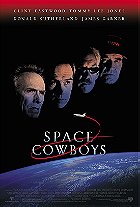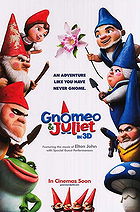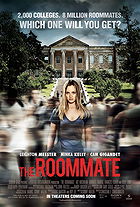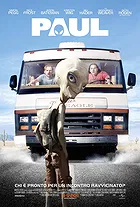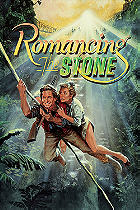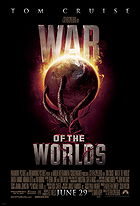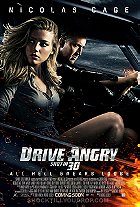Based on Clive Barker's short story The Forbidden, Candyman is a horror movie which combines elements of cinematic ghost stories, archetypal slasher/stalker circumstances and urban legends - and it is a rather solid combination at that. While the original short story was only around 35 pages in length, writer-director Bernard Rose added creative ideas and interesting additional subplots to create this 95-minute exercise in terror. However, what's most impressive about Candyman is that it scares you with ideas and gore, instead of simply just gore. There are no screaming, virginal teens in this tale - just educated, smart adults, and the audience are generally treated as educated and smart throughout the movie. Indeed, Candyman gleefully celebrates its status as a proper horror film while also possessing intelligence and creativity; two elements found all too rarely in this genre.

Helen Lyle (Madsen) is a grad student working on a thesis about urban legends with fellow student Bernadette (Lemmons). While interviewing locals about their knowledge and experience with urban legends, she learns about the insidious legend of the Candyman (Todd); a murdered black man in a fashionably long coat who haunts the housing estate of Cabrini Green and who can be summoned by reciting his name five times in a mirror. Helen also learns that the residents of a slum neighbourhood are attributing a succession of gruesome murders to the Candyman. Unafraid of folktales, Helen attempts to summon the Candyman, and all hell begins to break loose. See, the Candyman is none too happy that Helen poses a threat to Cabrini Green's belief in him and thus his very existence. Helen ultimately becomes trapped in a waking nightmare, with the police and everyone else believing her to be a deranged, unhinged serial killer.
Clive Barker's original story explored urban myths within a depressed working class area of Liverpool, England, but Candyman's writer-director Bernard Rose shifted the narrative to Chicago. The result, surprisingly, is one occasion when a location change is actually beneficial - the shift allowed Rose to use America's historical baggage and racial turbulence to construct the mythology behind the titular Candyman, whose back-story is a bold tale of a brutal race crime involving illicit love and lynch mob retribution. Using Clive Barker's story as a blueprint, Rose created a new cinematic horror monster with the Candyman; an enigmatic antihero born out of romance and racism. With a hook for a hand and armed with real-life urban legend elements (the way Candyman is summoned is reminiscent of the story of Bloody Mary), a new horror icon was created.

With all this thought behind the story, the question looms: does it actually work as a horror film? The answer is a resounding yes, as the set-pieces are imaginative and there are a number of truly gruesome images which were brought to life with visual effects that remain disturbing by today's standards. The cinematography is impressive too, as the depressing slum environments provide an ominous backdrop for the supernatural premise; generating a tense ambience. The stark views of a cold Chicago make it seem as gothic as a haunted castle, and Phillip Glass' organ/piano/vocal score compounds the gothic sensibility. Furthermore, the ostensible directorial excesses such as the voiceover narration and a few random shots of bees and skylines are all placed in context here, and therefore feel necessary. The dialogue, too, is well-written, most notably the Candyman's lines which are chilling and poetic.
More mainstream-oriented film-goers may find Candyman's pacing to be too slow, but this helps the film more often than not; Rose took his time in letting the story unfold, and saved the violence for key moments to make the scares more effective. However, the film is flawed. The climax, for instance, seems too quick and too easy - a disappointing ending to a difficult journey. A powerful conclusion would have made this film an absolute knockout. In other areas, the police are of course extremely obtuse, and there are a few inescapable clichés that come off as contrived. Ultimately, I did not come away loving the movie despite its numerous strengths.

Horror movies are not often known for outstanding acting, but Candyman is better than average in the acting category. Virginia Madsen (Michael Madsen's sister, ladies and gentlemen) placed forth a convincing performance as the bewildered heroine Helen. Madsen imbued her role with confidence and intelligence, which makes the events of the second half feel all the more tragic and degrading. Not to mention, the mix of strength and weakness in Madsen's performance contributes to the sense of mental decay as Helen's world is turned upside down. Also excellent here is Tony Todd, who utterly inhabited the role of Candyman with commendable abandon. His powerful, authoritative voice ensures you will quickly fall under his sway. Meanwhile, Xander Berkeley is appropriately slimy as Helen's professor husband, and the amiable Kasi Lemmons submitted a fine performance as Helen's best pal Bernadette. Everyone's favourite Raimi brother Ted even shows up in what amounts to a mere cameo appearance, and he is an amusing highlight.
In spite of a few script flaws and slow patches, Candyman drips with atmosphere. Though conventional scare tactics are used from time to time, the majority of the film's feeling of dread is derived from Cabrini Green's grungy, graffiti-filled walls, as well as the mix of synthesised music and operatic vocals accompanying the material.
6.9/10
 Login
Login
 Home
Home 183 Lists
183 Lists 1667 Reviews
1667 Reviews Collections
Collections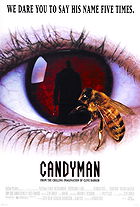
 0 comments,
0 comments, 